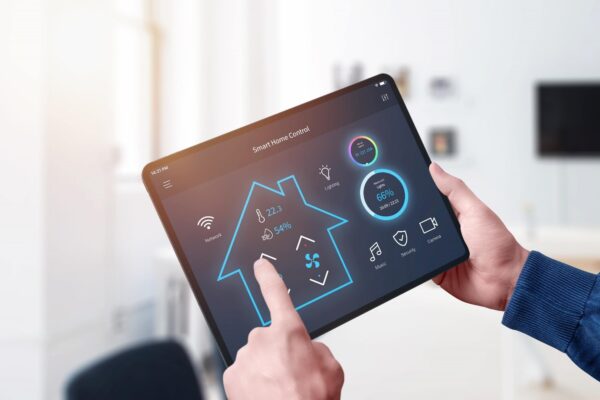In an era defined by technological advancements, the real estate market has seen a surge in demand for properties equipped with smart home technology. From energy-efficient thermostats to sophisticated security systems, smart home devices are no longer just a luxury but are becoming a significant factor in determining property value. Kory Habiger understands that for homeowners and real estate professionals alike, understanding the impact of smart technology on property value is crucial.
What is Smart Home Technology?
Smart home technology refers to devices and systems that use automation, artificial intelligence (AI), and connectivity to enhance the functionality and convenience of a home. These technologies allow homeowners to control and monitor various aspects of their homes remotely through smartphones, tablets, or voice assistants. Popular smart home categories include:
- Energy Management: Smart thermostats, energy-efficient lighting, and solar panel integrations.
- Home Security: Smart locks, surveillance cameras, and alarm systems.
- Appliance Automation: Smart refrigerators, washing machines, and robotic vacuums.
- Climate Control: Automated blinds, air purifiers, and humidity sensors.
The integration of these technologies not only offers convenience but also contributes to a sustainable and efficient living environment.
How Smart Technology Increases Property Value
The value of a property is determined by several factors, including location, size, and condition. In recent years, smart home technology has emerged as an additional differentiator in the real estate market. Here’s how it contributes to property value:
- Energy Efficiency and Cost Savings One of the primary appeals of smart home technology is energy efficiency. Devices such as smart thermostats and energy monitoring systems help homeowners reduce utility bills by optimizing energy usage. For instance, a smart thermostat can learn a household’s schedule and adjust heating or cooling accordingly, saving money and reducing the home’s carbon footprint. Energy-efficient homes are particularly attractive to environmentally conscious buyers, who are often willing to pay a premium for sustainable features. According to a study by the National Association of Realtors (NAR), energy-efficient properties sell faster and for higher prices than those without such features.
- Enhanced Security Features Home security is a top priority for many buyers, and smart security systems add significant value to a property. Features like video doorbells, motion-activated cameras, and remote access to locks provide peace of mind and convenience. A home equipped with a comprehensive smart security system often appeals to families and professionals who prioritize safety, making it more competitive in the market. Buyers perceive homes with advanced security as lower-risk investments, which can justify a higher asking price.
- Convenience and Customization Smart home technology enhances the living experience by providing convenience and personalization. For example, automated lighting systems can be programmed to match a homeowner’s daily routine, while voice-activated assistants like Amazon Alexa or Google Assistant can control multiple devices simultaneously. This convenience is particularly appealing to tech-savvy buyers or those who value a modern lifestyle. Customizable features make a property stand out, increasing its desirability and perceived value.
- Future-Proofing Homes equipped with smart technology are often seen as future-proof investments. As the Internet of Things (IoT) continues to evolve, buyers are increasingly looking for properties that can adapt to emerging technologies. A home with pre-installed smart systems demonstrates forward-thinking design and reduces the need for costly upgrades later.
- Market Differentiation In competitive real estate markets, standing out is essential. Properties with integrated smart technology have a unique selling point that can attract a broader range of buyers. Realtors report that smart homes often spend less time on the market and receive more offers compared to traditional homes.
Key Smart Home Technologies That Add Value
While nearly all smart home devices can enhance a property’s appeal, certain technologies have a more direct impact on value. These include:
- Smart Thermostats: Products like Nest or Ecobee are popular for their energy-saving capabilities and ease of use.
- Smart Security Systems: Integrated systems combining cameras, alarms, and remote access features are highly sought after.
- Energy-Efficient Lighting: Smart bulbs and fixtures that can be controlled remotely or programmed for optimal usage.
- Smart Appliances: Kitchen and laundry appliances with Wi-Fi connectivity add a modern touch to the home.
- Smart Water Leak Detectors: These systems prevent costly damage by alerting homeowners to leaks in real time.
Challenges and Considerations
Despite its benefits, implementing smart home technology comes with challenges. Upfront costs can be significant, particularly for comprehensive systems. Additionally, technology can become obsolete quickly, requiring updates or replacements to maintain value. Homeowners must also consider compatibility issues between devices from different manufacturers.
Another concern is cybersecurity. Buyers may hesitate to invest in homes with smart devices if they perceive a risk of hacking or data breaches. Educating potential buyers about security measures, such as encrypted networks and two-factor authentication, can alleviate these concerns.
How to Market a Smart Home
For sellers, effectively marketing smart home features is crucial. Highlighting the benefits, such as energy savings and enhanced security, can make a property more appealing. Providing a demonstration of how the technology works during showings can also leave a lasting impression on potential buyers.
Real estate agents should emphasize the cost savings and convenience of smart devices, as well as their role in creating a sustainable and efficient living space. Including a list of installed smart features in property descriptions can help attract tech-savvy buyers.
Smart home technology is transforming the way we live and invest in real estate. By increasing energy efficiency, enhancing security, and offering unparalleled convenience, these technologies have become a powerful tool for boosting property value. As demand for smart homes continues to grow, homeowners and real estate professionals who embrace this trend stand to gain a competitive edge in the market. Whether you’re planning to sell your home or simply want to increase its appeal, integrating smart technology is a forward-thinking investment with long-term benefits.
